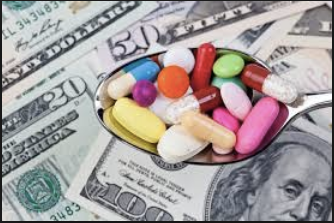I have a Medicare prescription drug plan. How will this affect me?
Let’s answer this question with a question: Do you take an expensive medication for a chronic condition?
If you need expensive drugs, your out-of-pocket costs are likely to go down. Under the current system, your deductible and any coinsurance — a requirement that you pay a percentage of a drug’s cost yourself — is based on something close to a drug’s list price.
Under the new plan, those amounts would be based on a lower net price, or the cost after discounts had been deducted. The proposal estimates that seniors’ monthly out-of-pocket drug costs would decline, on average, $1.70 to $2.74 a prescription in 2020.
That average, however, obscures the significant savings some people will see if they have extremely high drug costs: Some could save about 30 percent on their out-of-pocket costs, the administration estimated.
Not everyone will benefit. Pharmacy benefit managers secure rebates only when there is competition between manufacturers who sell similar brand-name drugs, like two kinds of blood pressure medications.
But many costly drugs — cancer treatments, for example — have little or no competition and carry either no rebates or small ones. Patients needing these drugs would not see extra savings.
If you don’t take expensive drugs, your monthly costs are likely to rise because premiums will go up. Insurers would no longer be able to apply rebate money from the drugs to lower premiums.
The typical Medicare beneficiary will see costs rise $2.70 to $5.64 a month, estimates indicate.




